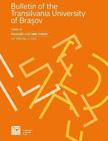On the changes in the Korean family institution in the past century
On the changes in the Korean family institution in the past century
Author(s): Elena BujaSubject(s): Gender Studies, Comparative Study of Literature, History and theory of sociology, Methodology and research technology, Family and social welfare, Demography and human biology, Sociology of Culture, Social Norms / Social Control, Socio-Economic Research, Sociology of Literature
Published by: Editura Universitatii Transilvania din Brasov
Keywords: family institution; status roles; changes; South Korea; thematic analysis;
Summary/Abstract: This small-scale study aims to trace the changes that have occurred in the Korean family institution in a time span of about one hundred years, more specifically, since the beginning of the 20th century, when Korea opened its borders to foreigners, until the present, as well as to identify the causes that have led to these changes. The theoretical framework I will employ is thematic analysis, defined by Berelson (1952, 18) as “a research technique for the objective, systematic, and quantitative description of the manifest content of communication”. The data subjected to analysis come from a number of novels authored by Korean and Korean-American writers, such as H. Lee (1997) Still Life with Rice, S. Park (2011) This Burns My Heart, and NJ. Cho (2018) Kim Jiyoung, Born 1982, to mention just a few. The reason behind opting for literature as a source of information is that I consider it to be a cultural product of particular socio-cultural circumstances inextricably linked to history. The fragments from the novels have been analyzed in terms of some of the identified themes, such as the status roles created by marriage in the Korean culture, the involvement of men in the house chores and child-rearing, in-laws’ attitudes towards their daughters-in-law, and the chances of married women to keep their jobs, divorce, to mention just a few. The primary data is supplemented with information coming from the Korean society trend survey, conducted by Statistics Korea. The findings of the analysis will reveal a slow, though obvious change in the family institution, which could be attributed to factors such as the Western influence, the spread of Christianity in the peninsula, as well as the massive industrial, technological, and economic development of Korea.
Journal: Bulletin of the Transilvania University of Braşov, Series IV: Philology & Cultural Studies
- Issue Year: 15/2022
- Issue No: 2
- Page Range: 153-177
- Page Count: 25
- Language: English

